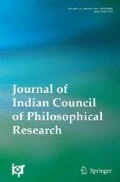Abstract
In his proposal for a democracy by consensus, Wiredu argued that deliberation is an activity that depends solely on the logical persuasiveness of ideas. Emmanuel Chukwudi Eze and I had objected to this view of deliberation. Bernard Matolino has responded separately to Eze and me by sticking to Wiredu’s position that deliberation is a purely rational activity. In this article, I support my earlier claim that persuasion (and hence deliberation) is not an entirely logical activity, and our concern as human beings is to recognize the influence of non-rational factors, for the purpose of minimizing the role of these non-rational factors. My general aim here is to explore the implications of a counterfactual situation in which we assume that deliberation is a purely rational activity, and these implications are unpalatable even to proponents of deliberation as a purely rational activity. My conclusion is that it is only by recognizing the role of non-rational factors in deliberation that we are driven to institute mechanisms to ensure that logic dominates over non-rational factors as much as practicable in either persuading or in being persuaded. Assuming that deliberation is a purely rational activity, on the other hand, forestalls any measures and allows non-rational influences to fester undeterred.
Similar content being viewed by others
Notes
A book chapter titled “The Question of Rationality in Kwasi Wiredu’s Consensual Democracy”, in Edwin Etieyibo (ed.), Method, Substance, and the Future of African Philosophy. London: Palgrave Macmillan (in press).
References
Ani, E. I. (2014). On traditional African consensual rationality. Journal of Political Philosophy, 22(3), 342–365.
Ani, E. I. (2019). The consensus project and three levels of deliberation. Dialogue: Canadian Philosophical Review, 58, 299–322.
Ani, E. I. (2020). Is bargaining a form of deliberation? Philosophical Papers, 49(1), 1–29.
Aristotle. (2004). Rhetorics (W. Rhys Roberts, Trans.). New York: Courier Dover Publications. http://www.bocc.ubi.pt/pag/Aristotle-rhetoric.pdf.
Conglianese, C. (2000). Is consensus an appropriate basis for regulatory policy? Retrieved June 13, 2016, from http://papers.ssrn.com/sol3/papers.cfm?abstract_id=270488.
Corman, S., Hess, A., & Justus, Z. S. (2006). Credibility in the global war on terrorism: Strategic principles and research agenda. Consortium for Strategic Communication, Phoenix Metropolitan Area: Arizona State University.
Cranford, R. E., & Doudera, A. E. (Eds.). (1984). Institutional ethics committees and health care decision making. Ann Arbor, MI: Health Administration Press.
Eisend, M. (2006). Source credibility: Dimensions in marketing communication—A generalized solution. Journal of Empirical Generalizations in Marketing Science, 10, 1–33.
Eze, E. C. (2000). Democracy or consensus? Response to Wiredu. Polylog. http://them.polylog.org/2/fee-en.htm.
Fost, N., & Cranford, R. E. (1985). Hospital ethics committees: Administrative aspects. Journal of the American Medical Association, 253, 2687–2692.
Henderson, G. (2013). Thirteen years later, Armstrong returns Olympic medal. NPR (12 September). Retrieved August 11, 2019, from https://www.npr.org/sections/thetwo-way/2013/09/12/221906413/13-years-later-lance-armstrong-returns-olympic-medal.
Hovland, C., et al. (1953). Communication and persuasion. New Haven, GT: Yale University Press.
Kliegman, R. M., Mahowald, M. B., & Yougner, S. J. (1986). In our best interests: Experience and workings of an ethic review committee. Journal of Paediatrics, 188, 178–188.
Lynn, J. (1984). Roles and functions of institutional ethics committees: The President’s Commission’s view. In R. E. Cranford & A. E. Doudera (Eds.), Institutional ethics committees and health care decision making (pp. 22–30). Ann Arbor, MI: Health Administration Press.
Mansbridge, J. (1983). Beyond Adversary Democracy. Chicago: The University of Chicago Press.
Matolino, B. (2009). A response to Eze’s critique of Wiredu’s consensual democracy. South African Journal of Philosophy, 28(1), 34–42.
Matolino, B. (2013). The nature of opposition in Kwasi Wiredu’s democracy by consensus. African Studies, 72(1), 138–152.
Matolino, B. (2016). Rationality and consensus in Kwasi Wiredu’s traditional African polities. Theoria, 63(146), 36–55.
Moreno, J. (1988). Ethics by committee: The moral authority of consensus. The Journal of Medicine and Philosophy, 13, 411–432.
Robertson, J. A. (1984). Ethics committees in hospitals: Alternative structures and responsibilities. Connecticut Medicine, 48, 441–444.
Rutonno, T. (2012). Armstrong losses eight sponsors in a day. CNBC (13 November). Retrieved August 11, 2019, from https://www.cnbc.com/id/49462583.
Sanders, L. M. (1997). Against deliberation. Political Theory, 25(3), 1–17.
Tredinnick, A. (2012). Lance Armstrong has lost his last sponsor. Business insider (22 October). Retrieved August 11, 2019, from https://www.businessinsider.com/lance-armstrong-has-lost-his-last-sponsor-2012-10?IR=T.
Wiredu, K. (1996). Cultural universals and particulars. Bloomington: Indiana University Press.
Wiredu, K. (2011). State, civil society and democracy in Africa. In H. Lauer & K. Ayidoho (Eds.), Reclaiming the human sciences and humanities through African perspectives (Vol. II). Legon-Accra: Sub-Saharan Publishers.
Author information
Authors and Affiliations
Corresponding author
Additional information
Publisher's Note
Springer Nature remains neutral with regard to jurisdictional claims in published maps and institutional affiliations.
Rights and permissions
About this article
Cite this article
Ani, E.I. Some Implications of Arguing that Deliberation is Purely Rational. J. Indian Counc. Philos. Res. 37, 303–321 (2020). https://doi.org/10.1007/s40961-020-00206-6
Received:
Revised:
Accepted:
Published:
Issue Date:
DOI: https://doi.org/10.1007/s40961-020-00206-6




